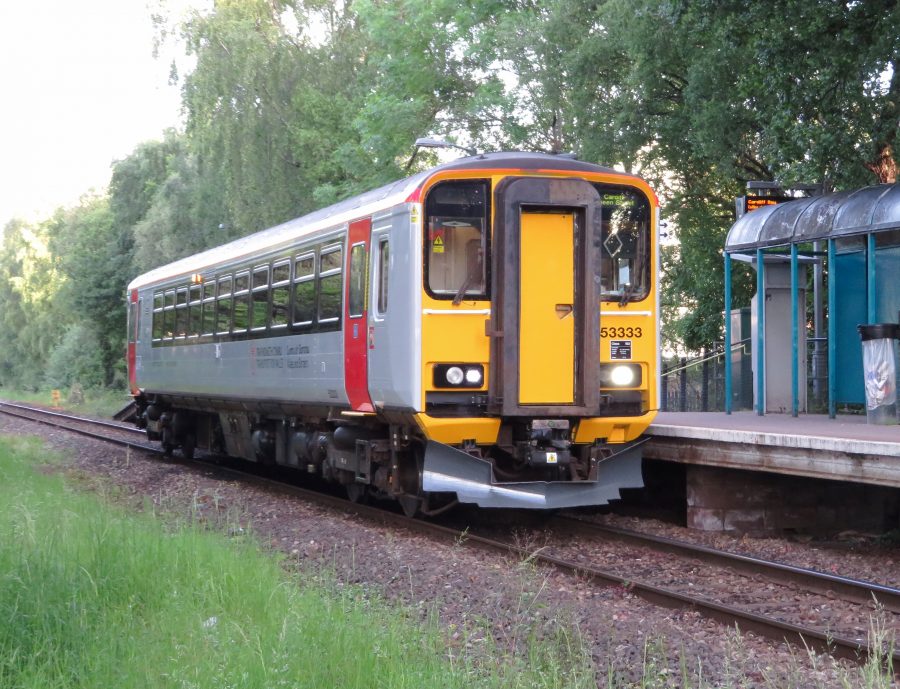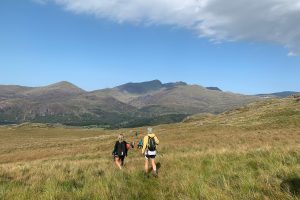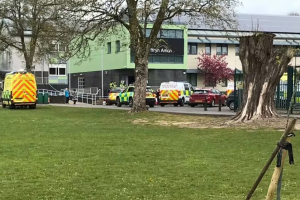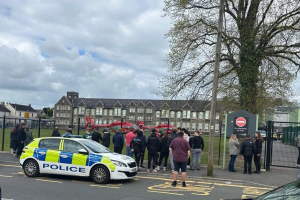WALES’ rural communities make up around a third of our population, and are spread across all parts of the country. Providing access to sustainable, safe and reliable public transport is vital not only to achieving our climate change goals but to help people access the services, employment, cultural and education opportunities to enable them to thrive.
I was pleased to be able to host a series of round tables with local authority leaders and transport experts from across Wales at the end of last year to discuss our plans in more detail, and would like to thank them for helping to shape our approach.
We recognise that the transport needs of communities in rural Wales will be different to those in more urban areas, and it is important to work with those communities to plan the types of public transport services they will need. It can’t be a ‘one size fits all’ solution; each community has its own requirements and challenges that will impact what works best for the people that live, work and visit them.
I was heartened to see the focus on rural transport in the North Wales Transport Commission, who identified the need to prioritise schemes that demonstrate better handling of key rural-to-rural connections. It recommends that new and more sustainable travel options such as car clubs, car sharing, cargo cycles, e-scooters and e-cycles. It also suggested effective workplace travel planning should be considered, an essential step in enabling people to think and act differently about the way they travel.
Llwybr Newydd – the Wales Transport Strategy – sets out our approach to developing a series of pathways centred on topics which are of strategic importance. They cut across different modes and sectors and are designed to pull together our commitments and plans on these topics in a way that allows people to easily track the progress both we as Welsh Government are making along with our local, regional and national delivery partners.
It is vital that we seek to find sustainable public transport models which are both tailored to the needs of rural communities, but also interface with more urban transport networks so that people can travel from urban to rural areas and vice versa with as little friction as possible.
Our Rural Pathway takes a hub-and-spoke approach. It will help those in the most isolated communities better access their local village or town. From there they will have a wider range of public transport and active travel choices to travel locally or to connect them to their nearest transport interchange for longer journeys.
The development and delivery of our rural pathway is already underway. We will be submitting a proposal shortly to the UK Government’s Union Connectivity Fund to develop plans to increase capacity along the Cambrian and Heart of Wales rail lines, and in doing so increase cross-border connectivity.
Working with Sustrans, our e-move pilot has shown the potential of free medium-term e-bike and e-cargo bike loans to support local communities. We will continue to develop out long-term approach to support people to take advantage of e-bikes for local journeys across Wales, including support for them to purchase them.
The new Sherpa service in Snowdonia, which sees electric busses minimising the use of cars within the National Park, is already providing new opportunities for local residents and visitors to see Snowdonia in a new and greener way. It is an approach which we will take and look to roll out in other areas of outstanding natural beauty and national parks across Wales.
Buses are the backbone of our public transport service. They carry three times as many passengers as trains, getting people across Wales to work and school, allowing us to meet family and friends, and offering a key lifeline for people in Wales who do not have access to a car. Our Bus Reform legislation will enable us to deliver a bus system which is governed and designed to serve the public interest, not just those routes which are commercially viable.
As well as new technologies, new service models will play an important part in allowing people to access public transport in a way and at a time that best suits their needs. Our Fflecsi pilots have shown that demand-responsive travel can provide a more flexible and adaptable service, with particular success in rural communities. We will examine the findings of this pilot carefully and embed them into our rural pathway framework for regions across Wales to exploit.
Electric car clubs also offer a new way of looking at car usage; both for those who want to use their car less, or may only use it some of the time, and for people who may struggle to afford the high cost of running a car. We are working in partnership with Powys County Council, Transport for Wales, and a range of partners to look at how we can increase provision of community-based car clubs.
Community transport is an important part of our transport system in Wales, supporting vulnerable people to access essential services. We will, through Transport for Wales, work with our Community Transport partners to look at ways we can best support both the people who use this vital service and those who give their time to run it.
We understand the importance of the strategic road network for rural Wales. Our roads are important assets and must be maintained. They also play a vital part in enabling modal shift to active travel and public transport. We will shortly publish the report from the independent roads review plus our position on the future of road investment to ensure that projects we fund are aligned to the delivery of our transport strategy ambitions and priorities.
Our delivery pathways also provide a framework to support the development of Regional Transport Plans, which will be developed for North, West, Mid and South East Wales by the regional Corporate Joint Committees (CJCs). It will allow each region to easily identify the different range of interventions they could make, and how they can implement them in a way that is consistent with Llwybr Newydd. These will be live frameworks, being updated as we test and develop new and innovative services and infrastructure solutions.
We are literally taking a Llwybr Newydd – a new path. The Wales Transport Strategy sets out a new way of thinking that places people and climate change at the front and centre of our transport system. This is something that we have to do; if we are going to protect the lives of our children, we need to achieve net zero by 2050. And in order to do that, we need to both change the way we travel, and rewire the system so it supports us to do this. Our rural pathway is one of many steps on the journey to achieve this.


















